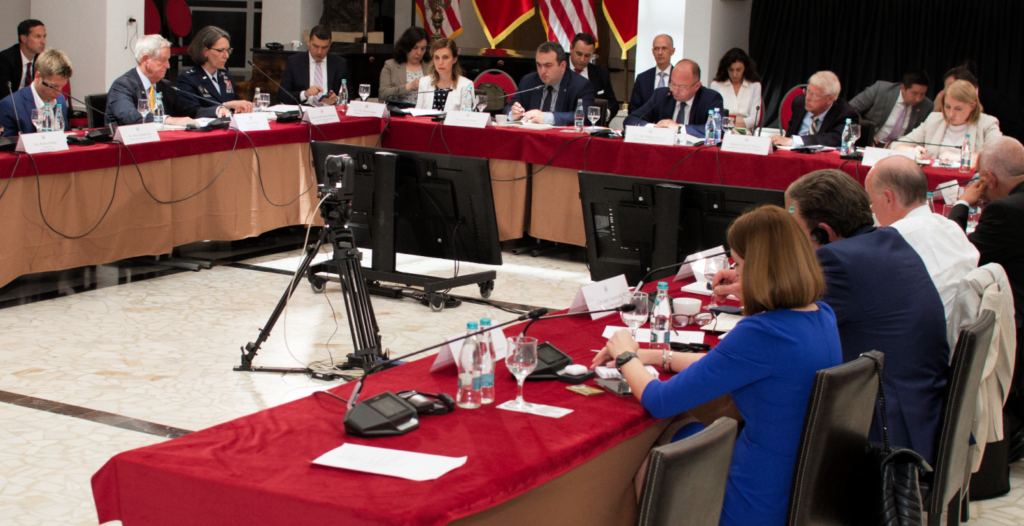The OSCE maintains close relations with several international organizations active in regional security, including the United Nations (UN), the North Atlantic Treaty Organization (NATO), the European Union (EU), and the Council of Europe (CoE).
As the OSCE recognizes that the United Nations Security Council bears primary responsibility for the maintenance of international peace and security, the UN is one of OSCE's closest partners. In 1992, the OSCE participating States declared the OSCE to be "a regional arrangement in the sense of Chapter VIII of the Charter of the United Nations" and in 1993, the United Nations Secretariat and the OSCE agreed on a framework for cooperation and coordination. The UN granted the OSCE observer status the same year.
Relations between the OSCE and NATO have been crucial in developing the security architecture of post-Cold War Europe. Since the beginning of the Helsinki process, NATO has significantly contributed to the debate within the OSCE on developing an OSCE security model, and NATO's important role in promoting security in Europe is emphasized in a number of OSCE documents, such as the 2003 OSCE Strategy to Address Threats to Security and Stability in the Twenty-First Century.
Since the beginning of the Helsinki process, the EU and its Member States have played a vital role in the work of the OSCE, and all EU Member States are at the same time participating States of the OSCE. Over the years, the scope of cooperation between the OSCE and the EU has both broadened and deepened following development of the EU Common Foreign and Security Policy and the launch of the first EU crisis management operations.
The OSCE and the CoE have a well-established and long-standing relationship, based on their shared values of democracy, human rights, and the rule of law. CoE legal instruments are complemented by the OSCE’s norm-setting political commitments, institutions and strong field presence.



